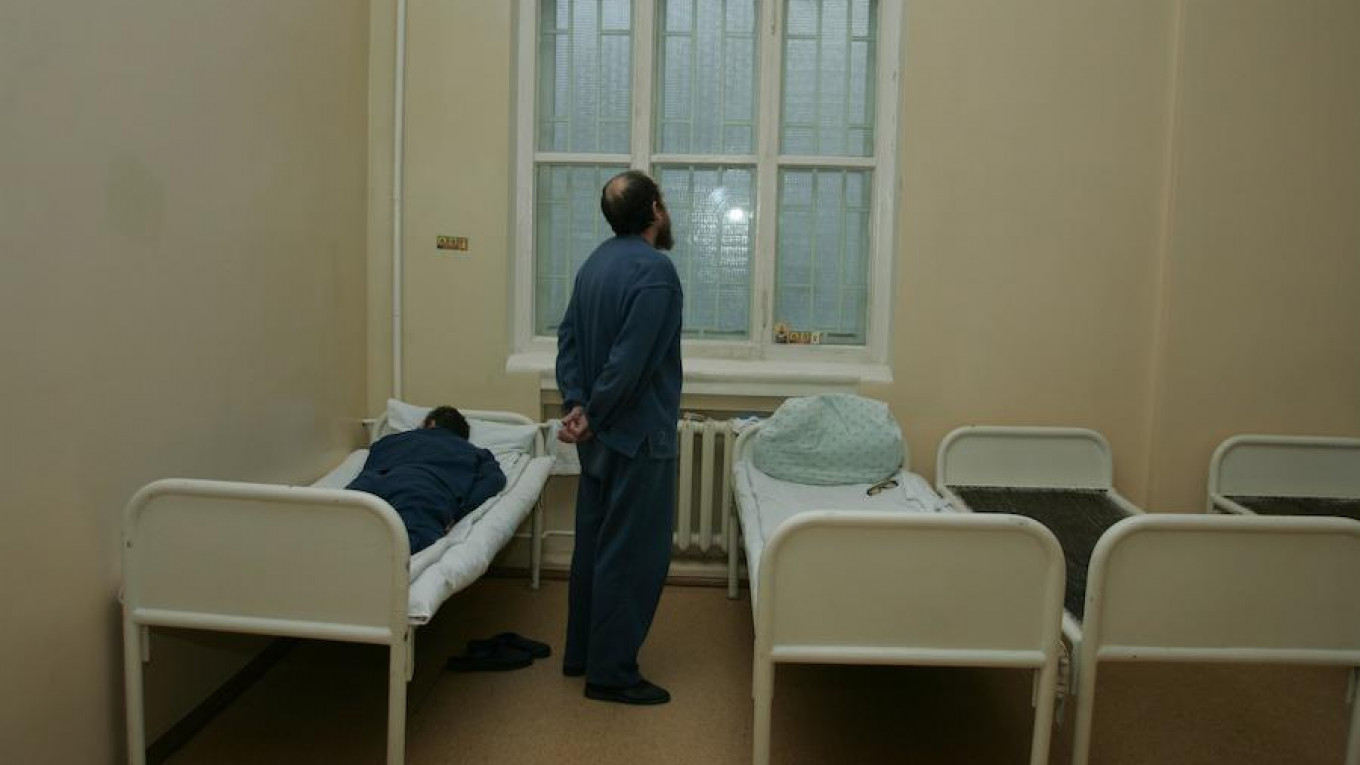When it was founded in August, “National Pharmaceutical Registry, Ltd.” (NPR) seemed innocuous enough. The company planned to create a unified registry of pharmaceutical products purchased, sold, and imported in Russia. Their database would assist with state procurement of medications.
It looked like an straightforward case of a public-private partnership. The only noteworthy thing about the company was its close ties to Arkady and Boris Rotenberg, two of President Vladimir Putin’s closest confidantes.
Now, National Pharmaceutical has announced a second public-private partnership, and this time the company has many people worried.
Earlier this month, the company outlined its plan to create a unified registry of all Russians suffering from psychiatric illnesses. The database will make a psychiatric patient’s medical records and history available in clinics across the country and help the government give out medical certificates, the company suggested. The Russian government has ordered the Health Ministry to evaluate the proposal.
The project remains in the planning phase, but psychiatrists are already raising the alarm over confidentiality, security and what the database will be used for.
“It violates the law and medical privacy,” says Yuri Savenko, a psychiatrist and president of the Independent Psychiatric Association. “It’s so glaringly wrong, it makes your hair stand on end.”
Back to the USSR
Russian law requires medical institutions to strictly guarantee patients’ confidentiality. Even the fact that a patient visited a medical facility is considered secret. Currently, psychiatric patients’ medical records are stored at individual hospitals and clinics. This potentially makes the data less mobile if a patient moves cities, but ensures it is managed by medical institutions
But it wasn’t always this way. In the Soviet era, virtually any individual diagnosed with a mental illness was automatically recorded as a psychiatric patient. Such patients were required to regularly undergo medical monitoring at psychiatric clinics and faced restrictions on where they could live, work, and study. Removing oneself from the registry was nearly impossible, and the stigma of being a psychiatric patient often lasted a lifetime.
These laws were abolished in the 1990s, but stigma surrounding mental illness persists in Russia, where consulting with a psychologist – let alone a psychiatrist – is much less widely accepted than in the West. A 2015 survey by the independent Levada Center pollster showed that 75 percent of Russians support returning the Soviet practice of forcibly hospitalizing people suffering from mental illness.
Savenko believes the plan for a unified psychiatric registry resembles a return to the Soviet system and will only increase stigma. He and others worry that handing medical records over to a private company risks data leaks and will undermine the confidentiality of doctor-patient relations.
National Pharmaceutical is “not a medical organization – it’s a third party that doesn’t provide medical help,” says Alexander Saversky, director of the League of Advocates for Patients. As a result, their project “requires violating patient privacy.
Not everyone agrees. National Pharmaceutical suggests that a unified database with psychiatric patients’ entire medical history will make medical records more easily transferable and ease the process of giving out health certificates needed to receive a driver's license, get a gun ownership permit, or be hired for certain jobs.
The government also appears interested and has has ordered a “road map” for the project be worked out by the beginning of 2017, National Pharmaceutical’s CEO Nikolai Duksin told Russia’s Life News.
Neither Duksin, nor National Pharmaceutical Ltd. were available for comment to the Moscow Times.
‘Total Collapse’?
The new database is not only superfluous, Savenko says: It also threatens the “total collapse” of psychiatry in Russia.
“Our discipline requires an extremely strict approach to medical secrecy,” he says. “Without it, people simply won’t come for treatment.”
So far, NPhR’s project is far from realization. Because it potentially violates Russian law, Saversky thinks that the unified registry plan is dead on arrival.
But should the project continue, Savenko believes it will face fierce resistance from psychiatrists.
“We will speak out in a united front,” says Savenko. “We will do everything we can to prevent this.”
A Message from The Moscow Times:
Dear readers,
We are facing unprecedented challenges. Russia's Prosecutor General's Office has designated The Moscow Times as an "undesirable" organization, criminalizing our work and putting our staff at risk of prosecution. This follows our earlier unjust labeling as a "foreign agent."
These actions are direct attempts to silence independent journalism in Russia. The authorities claim our work "discredits the decisions of the Russian leadership." We see things differently: we strive to provide accurate, unbiased reporting on Russia.
We, the journalists of The Moscow Times, refuse to be silenced. But to continue our work, we need your help.
Your support, no matter how small, makes a world of difference. If you can, please support us monthly starting from just $2. It's quick to set up, and every contribution makes a significant impact.
By supporting The Moscow Times, you're defending open, independent journalism in the face of repression. Thank you for standing with us.
Remind me later.






